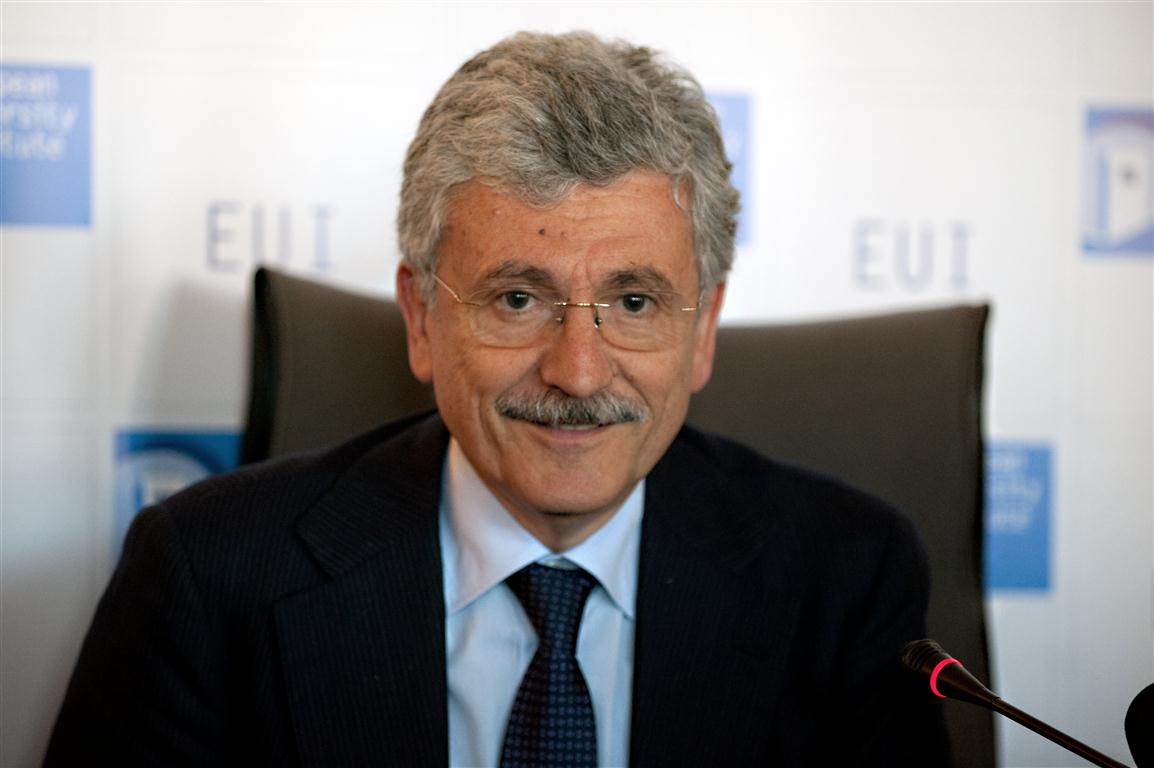What D’Alema says (and what he doesn’t say) about Putin and Kosovo

The speech by Marco Mayer, United Nations official in Kosovo from October 1999 to October 2002
On Il Tempo , in an article by Claudio Querques, I read that "Putin has his reasons …"
Pills by Massimo D'Alema-thought, pills granted in small doses and on which one could even gloss over if it were not for the former Prime Minister who in the autumn in 1999 authorized the use of our airspace to bomb Serbia.
Differently atlantists, one might say. And without remorse.
D'Alema stated: "Our concern was to make war with the Allies, but also to create the conditions for an agreement – claims the president of the Italian European Foundation – The first to enter Pristina were the Russian soldiers who were part of the UN international contingent ".
This last statement by the former DS secretary would seem to accredit the idea that the first arrival of the Russian military at Pristina airport was the confirmation of the good relationship between Russia and NATO.
Too bad things went differently. Russia is known to have strongly opposed the NATO bombing, but it is less known that Moscow did not find a substantial agreement on the ground even in the subsequent post-conflict stabilization phase.
Russia, in fact, aspired to lead and control an area (possibly with a Serbian majority) in which Kosovo would be divided, but its request was not accepted. The international military contingent was, in fact, organized in five zones controlled by the United States, United Kingdom, Germany, Italy and France. When it realized that it would not be given "its" zone, Moscow wasted no time. He reacted with a very rapid military blitz (apparently he had already been prepared the previous month in a secret GRU mission).
President Boris Yeltsin in agreement with his dolphin – FSB chief Vlaidimir Putin (he will be appointed prime minister in August) – decided to order his generals in Bosnia to move their paratroopers to Kosovo to forcefully occupy the airport. of Pristina, the control of which should instead belong to the British contingent. Following the orders of the Kremlin, in the night between 11 and 12 June 1999 the Russian paratroop column crossed the border between Bosnia and Kosovo without the NATO command having been informed. Before crossing the border, the vehicles changed the signage from SFOR to KFOR.
The following morning, Pristina's Slatina airport was soon under the full control of the Russian Federation's armed forces, which prevented British helicopters from landing on the runway by their means. Fortunately, the accident had no worse consequences. The credit goes to General Mike Jackson, who had the courage to disobey the orders of the American commander of SACEUR, General Wesley Clark. The story is mentioned in all contemporary military history manuals.
Despite the success of his blitz at the Pristina airport, Russia will continue to be marginalized in the military and civilian presence in Kosovo until, aware of the uselessness of the Russian military presence in the Balkans, Putin plans for 2003 the withdrawal of his troops from Kosovo and from Bosnia to focus its efforts on Chechnya.
I regret that D'Alema provides a partial version of the facts to argue his current positions on the invasion of Russia in Ukraine. It is undeniable that the Russian military arrived first in Kosovo, but if the reasons are not explained there is a risk of making a hoax or in any case of overestimating an alleged collaboration between Russia and NATO that in reality has never really taken off.
This is a machine translation from Italian language of a post published on Start Magazine at the URL https://www.startmag.it/mondo/dalema-putin-kosovo/ on Thu, 12 May 2022 06:16:06 +0000.
